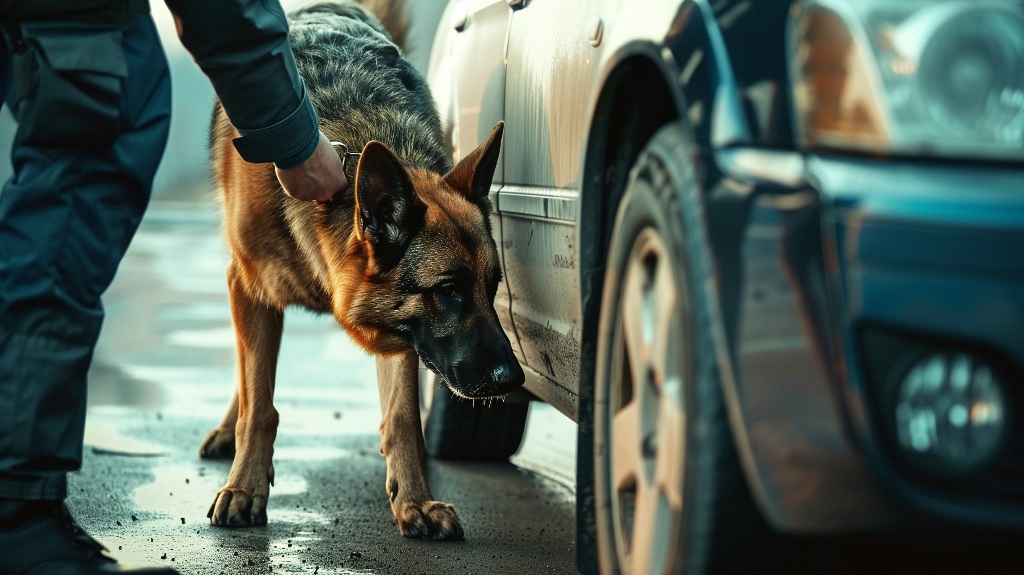When Can Police Search Your Vehicle Without a Warrant in Wisconsin?
Getting pulled over is enough to make anyone nervous. Your heart rate probably jumps the second those flashing lights hit your rearview mirror. Sometimes, the officer asks to search your car. Do you have to say yes?
While the Constitution protects you from unreasonable searches and seizures, some exceptions exist. So, when can police search your vehicle without a warrant in Wisconsin? Here is a breakdown of when police can and cannot legally search your vehicle.
Your Rights Under the Fourth Amendment
The Fourth Amendment of the U.S. Constitution protects your right to privacy. Plus, it gives you freedom from warrantless searches. But when it comes to vehicles, the rules are different compared to your home.
Since your car is mobile, you have a lower expectation of privacy. Sometimes, police do not always need a warrant to look inside.
However, that does not mean they have carte blanche to search your car whenever they want. There are limits. Here is when a search without a warrant is considered legal in Wisconsin.
You Gave Consent
Many times, an officer will ask to search your car. If you say “yes,” that is all that is required. They do not need a warrant, and they do not need a reason. Plus, they don’t have to tell you you can say no. When asked this question, remember that you have the right to decline. A polite “I do not consent to a search” is perfectly legal. This is usually the best way to assert your rights.
They Have Probable Cause
If the officer sees, smells, or detects something that gives them reason to believe your vehicle contains evidence of a crime, that could be probable cause. And they have a right to search your vehicle. This can happen in a few situations, such as:
- They smell marijuana coming from your car.
- They see drug paraphernalia or an open container in plain view.
- You or a passenger says something incriminating.
In those situations, they can legally search without your permission or get a warrant.
You’ve Been Arrested
If you are being arrested, the police may be allowed to search parts of your vehicle. However, there are limits under the law. Under the Supreme Court decision on Arizona v. Gant, officers can only search the area within your reach, like the front seats. Once again, this can only occur if:
- You are unsecured and could access a weapon or evidence
- They believe the car contains evidence related to the reason you were arrested.
In short, this does not give officers the right to a baseless search. For example, they cannot pop your trunk because you had a broken headlight.
They See Something in Plain View
If the officer walks up to your car and sees something illegal, like a firearm or illegal drugs, they are allowed to take it and investigate. This is called the plain view doctrine. However, the item must be visible without opening compartments, bags, or containers.
The Car Is Being Impounded
If your vehicle gets towed, police can conduct an inventory search. This is to protect your belongings and document what is inside the car. But if you have anything illegal, it could be used against you.
There Are Emergency Circumstances
Sometimes, officers act quickly because they fear evidence will be destroyed if they wait. They may believe that someone is in danger or that the illegal items will be removed from the car while they get a warrant. In these rare situations, known as exigent circumstances, a warrantless search might be allowed. Many times, this exception can be challenged.
If the Search Was Illegal, What Happens?

If the police searched your car without a warrant and none of the exceptions apply, any evidence they found might be thrown out in court. This is known as the exclusionary rule. Many times, that could make or break your case.
If you are facing charges after a possible illegal search of your vehicle, you need to speak to an experienced Wisconsin criminal defense lawyer. They can look at the validity of the search and resulting evidence to see whether a motion can be filed to suppress evidence.
We Can Provide Legal Help for Your Criminal Case
When can police search your vehicle without a warrant in Wisconsin? The scope is very narrow, and this does not mean they can do whatever they want.
If you are unsure whether a search was legal or face criminal charges after a traffic stop, talk to Melms Law. We can help you with taking those next steps for your case. Contact us today to schedule a consultation.



